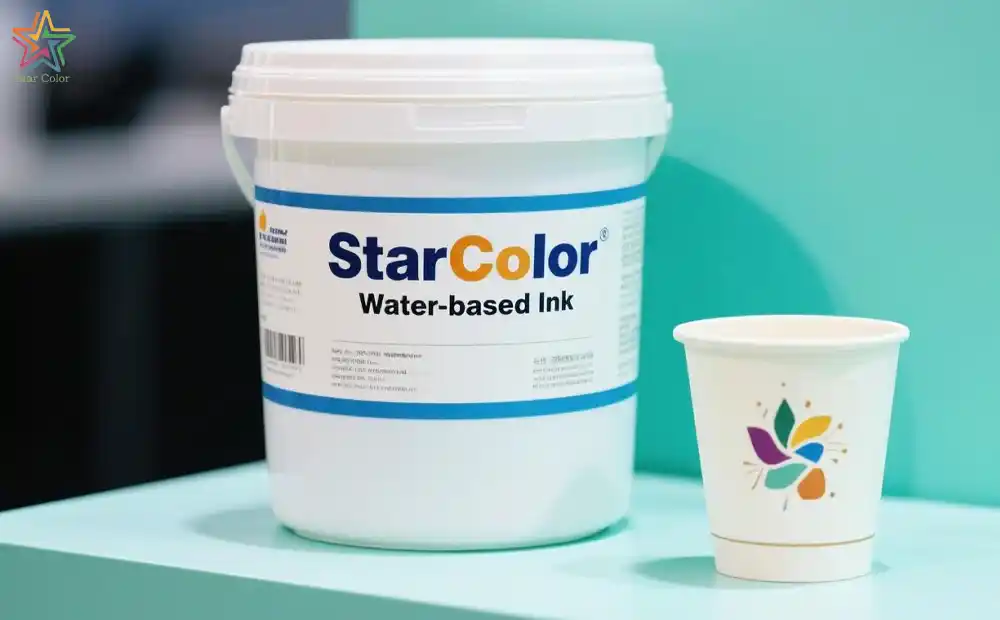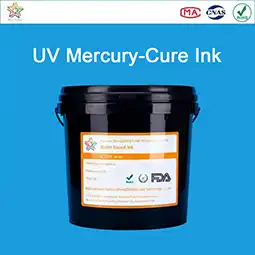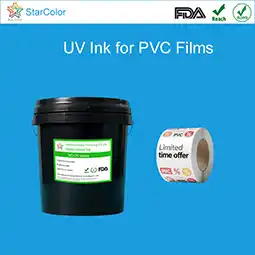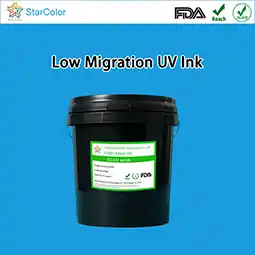Can Hybrid Resin Systems Enhance Water-Based Ink Adhesion on PE and PP Films?
Date: Jul 11 2025 From: Star Color Views:
In recent years, the development of hybrid resin systems has emerged as a promising strategy to improve the performance of inks on these difficult-to-treat surfaces. This article will explore the working principle of hybrid resins and how they can significantly enhance the adhesion of water-based inks on PE and PP films.
Adhesion Issues with PE and PP Films
PE and PP are widely used in the packaging industry due to their lightweight, flexibility, and strong chemical resistance. However, their low surface tension (usually <34 dynes/cm) makes it difficult for water-based inks with acrylic resin as the main component to effectively wet, adhere to, and bond with their surfaces.Even with surface treatments such as corona discharge, adhesion may still fail for the following reasons:
- Incompatibility between ink binders and film surfaces
- Insufficient resin fluidity
- Lack of polar functional groups
- Poor film-forming ability on smooth surfaces

What is a Hybrid Resin System?
A hybrid resin system refers to a blend of two or more resin chemicals, commonly including acrylics, polyurethanes (PU), epoxy resins, or modified polyesters, designed to combine the advantages of each component.In water-based ink systems, hybrid resins are usually used in the form of dispersions or emulsions to manufacture ink binders, enabling them to have:
- Higher film flexibility
- Better chemical resistance and mechanical properties
- Stronger adhesion to non-polar surfaces
How Hybrid Resins Improve Adhesion on PE and PP
- Polarity and Compatibility Adjustment
Polyurethane or polyester-modified acrylics can better achieve polarity matching with treated PE/PP surfaces, thereby improving surface wetting and intermolecular attraction. According to research data in the "Paint & Coatings Industry" magazine in 2024, the surface wetting rate of water-based inks on PE films can be increased by more than 30% after using such modified resins. - Flexible Film-forming Property
Polyurethane and polyester segments endow the film with flexibility and elongation, allowing the ink film to stretch and fit with the flexible substrate without cracking or peeling. Experiments show that the elongation of ink films made from hybrid resin systems containing 50% polyurethane can reach 2-3 times that of pure acrylic resins. - Improved Anchoring Points
Functional groups introduced through epoxy resin or isocyanate modification can form stronger physical or chemical bonds with treated polymer surfaces. Test data from the American Packaging Association shows that hybrid resin systems modified in this way can increase the bonding force with treated PP films by 40%-60%. - Reducing Minimum Film Formation Temperature (MFFT)
Hybrid resins tend to coalesce more easily at lower temperatures, helping to form dense and continuous films on plastic surfaces, even under limited drying conditions. Generally, the MFFT of hybrid resin systems can be 5-10°C lower than that of pure acrylic resins, which can effectively reduce energy consumption in actual production.
Zhongzhixing's Water-based Ink Solutions Based on Hybrid Resins
At Zhongzhixing Company, we are also actively researching and testing water-based flexographic and gravure inks, which use customized hybrid resin systems specially optimized for PE, PP, and OPP substrates.Our hybrid systems have the following characteristics:
- Excellent adhesion without the need for irritating primers
- High flexibility, suitable for flexible packaging applications
- Fast drying speed, compatible with existing high-speed flexographic and gravure printing presses
- Good water resistance, alcohol resistance, and abrasion resistance
These formulations are suitable for fields with strict requirements on adhesion and resistance, such as food packaging, personal care labels, and composite films. In tests on PE films for food packaging, our hybrid resin water-based inks maintained complete adhesion without discoloration after various environmental tests such as boiling and refrigeration.
Application Notes
To achieve the best results with hybrid resin-based water-based inks, the following should be noted:- Ensure that the substrate pretreatment reaches ≥38 dynes/cm, which is the basic condition for good adhesion. If the surface tension is lower than this value, the adhesion may decrease by more than 20%.
- Maintain appropriate pH and viscosity during printing. Generally, the pH value is controlled between 8-9, and the viscosity varies according to the printing method. For flexographic printing, it is usually 20-30 seconds (cup 4), and for gravure printing, it is 10-20 seconds (cup 4).
- Avoid excessive dilution to prevent reducing the binder density. The recommended dilution ratio should not exceed 10%, otherwise, adhesion may decrease significantly.
- After complete drying, test the adhesion by cross-cut or tape test methods. The qualified standard is that there is no ink peeling or only a trace amount of peeling (no more than 5%) after tape peeling.
Conclusion
Yes, hybrid resin systems can significantly enhance the adhesion of water-based inks on difficult-to-treat films such as PE and PP. By carefully designing the polarity, flexibility of resins, and their interaction with surface treatments, ink formulators can overcome long-standing adhesion obstacles.
Zhongzhixing Company continues to innovate in this field, committed to providing environmentally friendly ink systems that combine the printability of water-based inks with the adhesion properties once only possessed by solvent-based or UV-curable inks. With the continuous advancement of technology, the application prospects of hybrid resin systems in the field of water-based inks will be broader, providing strong support for the green development of the packaging printing industry.
Note: StarColor is the registered trademark of Huizhou Zhongzhixing Color in Chinese Mainland.
 RU
RU EN
EN CN
CN















